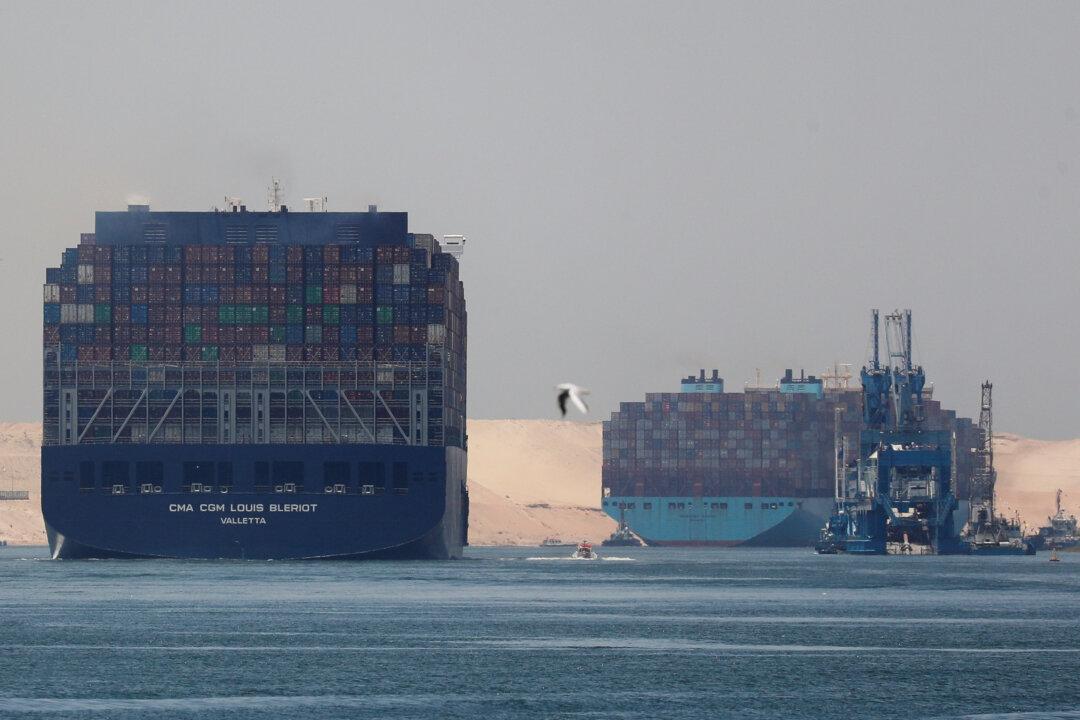COPENHAGEN/DUBAI/CAIRO—Iranian-backed Houthi militants attacked a Maersk container vessel with missiles and small boats, prompting the company to pause all sailing through the Red Sea for 48 hours, Maersk said on Sunday.
The naval battle occurred around 0330 GMT on Sunday as the attackers sought to board the Singapore-flagged Maersk Hangzhou, Maersk and U.S. Central Command (CENTCOM) said. Helicopters from the USS Eisenhower and USS Gravely joined the ship’s security team in repelling the attackers after receiving a distress call, CENTCOM said.





